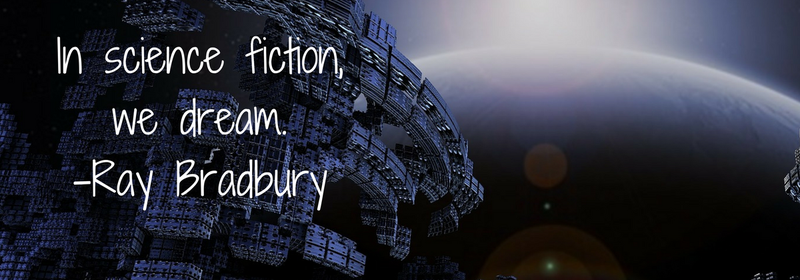
Fact, Fiction, or Future: A Look at the More Fantastic Side of Popular Culture
When a distinguished but elderly scientist states that something is possible, he is almost certainly right. When he states that something is impossible, he is very probably wrong. -Arthur C. Clarke
Article Header
« Return to Main PageFact, Fiction, or Future: A Look at the More Fantastic Side of Popular Culture
When a distinguished but elderly scientist states that something is possible, he is almost certainly right. When he states that something is impossible, he is very probably wrong. -Arthur C. Clarke
Introduction
Almost everyone has a favorite television show, movie, or book. There are many genres; two of the most famous being science fiction and fantasy. Giants like Star Wars and The Lord of the Rings permeate our cultural imagination. For most, these are modes of entertainment, a way to relax from life and its stresses. It is called fiction after all, meaning not reality, but could it ever be? What happens when the science fiction we view on our television screens loses the second word?
Fact, Fiction, or Future?
Fact, Fiction, or Future is a unique discussion created by Camp Infinity to examine how the science fiction of today is quickly becoming the science of tomorrow. The idea for the talk was proposed by Camp Infinity Founder, Dan Wooster, as a way to challenge kids to think about how they view entertainment and to inspire them. The very first Fact, Fiction, or Future talk took place during Overnight Camp 1 during Ci 4.0. The talk was a wonderful success, with some kids saying it was their favorite part of camp so far. The talk was also given during the second and third overnight camps of Ci 4.0 to equal praise from the kids.
How does it work?
The forty-five minute to an hour talk begins with a brief introduction explaining the concept of the talk and the rules for discussion. For the Ci 4.0 talk, the campers discussed four different questions:
-
Can we build a star trek communicator?
-
Can you see lasers in space?
-
Can we build a real spaceport?
-
Can we build a real warp drive?
For each topic, the campers were shown a clip from a television show or film that showcased the technology or concept in question. Then, in several small groups, they discussed if they thought the topic fact, fiction, or future.
Fact - The concept can be accomplished now or has been accomplished. Examples would include cell phones, landing a man on the moon, or Facebook; all of which were considered science fiction only a couple decades ago.
Fiction - The concept is impossible according to the laws of physics or the laws of reason. Watching cowboys fire several hundred rounds of ammunition from a six shot revolver without reloading would fall under this category.
Future - There is the possibility that the concept could be done at a later time with better understanding or resources. Luke Skywalker’s lightsaber from the Star Wars universe is a classic example.
After the discussion, each group reveals which category they chose and explains why. The host of the talk then showed the answer, sometimes surprising even the counselors. The answer is accompanied by either a video clip or an extended explanation by the host describing why the concept is categorized the way it is. After all discussion on that question is finished, the next question is posed, and the process repeats.
Conclusion
This talk is for anyone who has ever wondered just how fast the Millennium Falcon flies or how a transporter works and so much more. Fact, Fiction, or Future is another way Camp Infinity is challenging and inspiring kids to grow in their knowledge and pushing them to explore their potential.









